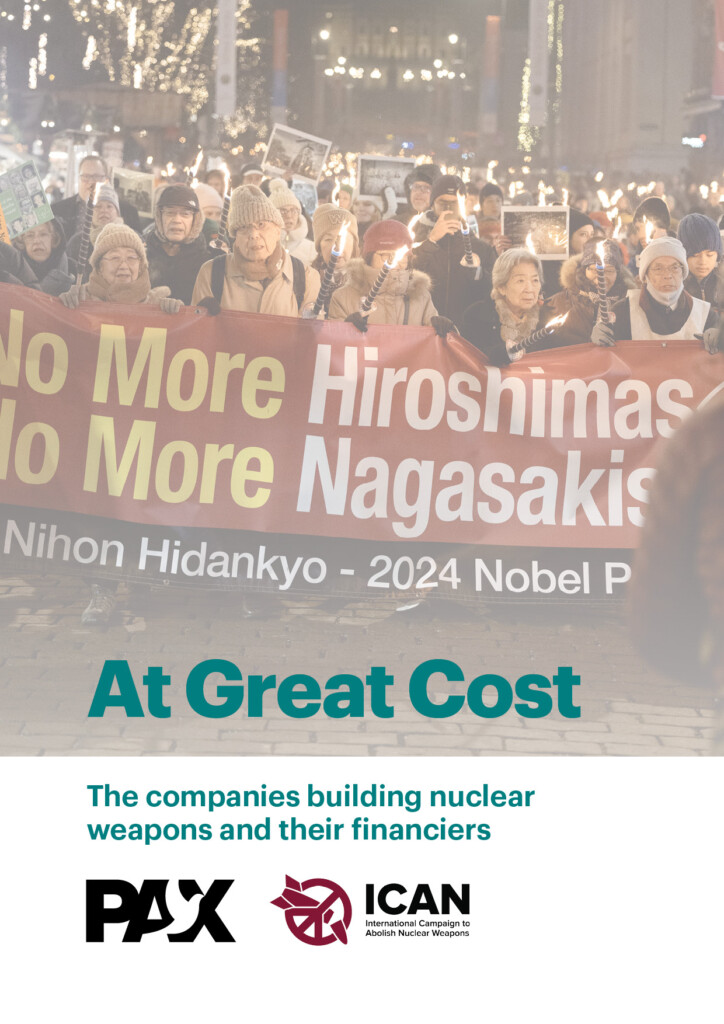The report “At Great Cost: The companies building nuclear weapons and their financiers” is a joint publication of PAX and ICAN. As shown in the report, between January 2022 and August 2024, 260 financial institutions had significant financing or investment relations with nuclear weapon producers, down from 287 institutions in previously published results.
Corporations profit greatly from the billions spent on nuclear weapons modernization. The report examines in detail the involvement of 24 companies in the production, maintenance or modernization of nuclear weapons. These companies contribute to the nuclear arsenals of China, France, India, the United Kingdom and the United States.
Northrop Grumman and General Dynamics remain the biggest nuclear weapons profiteers, with outstanding contracts with a potential value of at least $31 billion and $24 billion respectively, not including consortia and joint ventures. BAE Systems, Boeing, Leonardo, Lockheed Martin and RTX also hold multi-billion-dollar contracts for nuclear weapons production and/or maintenance.
Banks, pension funds, asset managers and other financial institutions worldwide continue to financially back the nuclear weapons industry. The financial institutions with significant financing or investment relationships with one or more of the 24 nuclear weapon producers are listed. Together, investors held almost $514 billion in shares and bonds in these companies, while just under $270 billion was provided in loans and underwriting.
The report’s findings show a $36.7 billion increase in share and bond holding values from the previous financial Don’t Bank on the Bomb analysis. There was, on the other hand, a $6.2 billion drop in loans and underwriting. Moreover, every year since the TPNW entered into force in 2021, the number of institutions identified with significant financial exposure to selected nuclear weapons producers has fallen.
The financial sector and corporate responsible behavior
Given their potential largescale and irremediable impact, being linked to the production of nuclear weapons holds salient human rights risks. As central actors to the flow of capital in our global economy, financial institutions are key to driving corporate responsible behaviour. As such, they can and should exert their influence to change the direction of companies who still insist peace and stability are achieved by building more nuclear bombs.
18 February 2025

